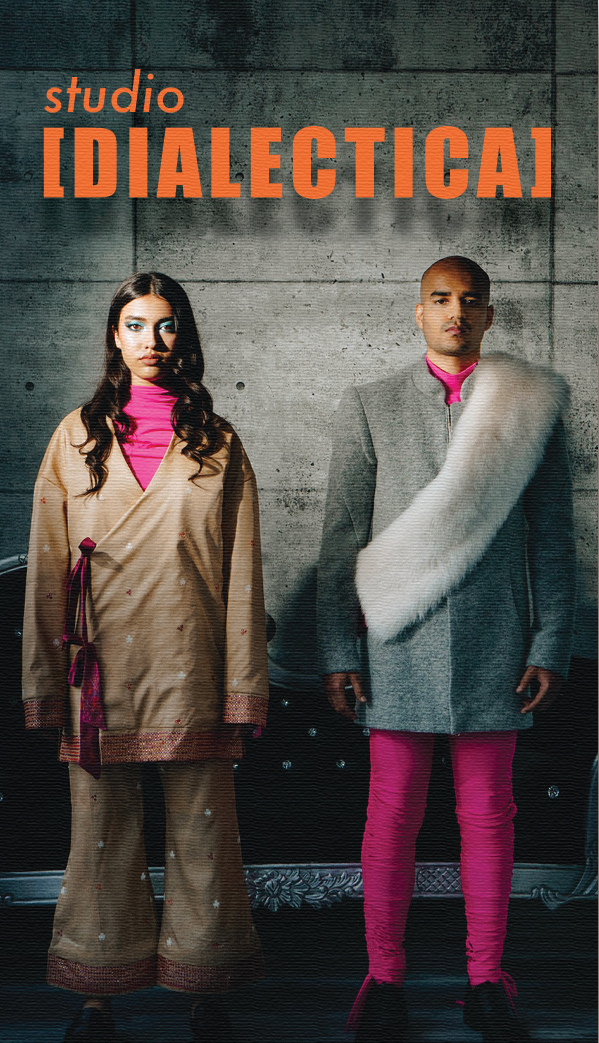Champion of Reuse
Studio [DIALECTICA]

Modular, upcycled clothing—no matter your body type, gender identity, or race—is available through indie designer, Arushi Chopra and their brand Studio Dialectica.
A lifestyle and clothing company with a circular economy twist, Studio Dialectica upcycles used fabrics and combines them with natural textiles like cottons, linens, and silks to produce one-of-a-kind garments. Art prints bring a cultural flair to the boxy pieces, so-designed to use up more of the secondhand materials without creating as much scrap.
According to the United Nations, about 17 kilograms of greenhouse gas (CO2e) are emitted per kilogram of new textile. By using secondhand material as stock for these outfits, Chopra saves them from the landfill and brings them back into circulation better than ever.
“My Indian heritage is infused into the brand and the pieces I’ve designed,” says Chopra, who says consumerism is becoming a problem in India. “They’ll buy so many outfits to one event.” Their advice: “[support] modular design, buy one thing to change it up.”
Chopra tries to keep things local to Ontario, though “finding things domestically and locally is a challenge since [textile] manufacturing isn’t [done] here.” Still, Chopra sees using secondhand materials as an advantage. The business saves money by not spending much to acquire new materials. “When people find out what I’m doing, people donate stuff. I have bins full of stuff people have given to me.”
Running a business is costly, though circular practices do help with that. “It’s about being resourceful. […] I could buy nice cotton labels that are embroidered but I can’t afford that right now, so I take scraps of cotton muslin and cut [my own labels]. I got my label [made] into a rubber stamp so I make my own. […] It’s still cotton, it’s still biodegradable, even the inks are oil-based so everything is falling into my values as a company.” The biggest challenge of implementing circular practices is time. “For example, it can take longer to figure out how to reuse things—like if there’s a stain or a rip, things you aren’t planning for necessarily. It takes time to save all your scraps, but not that much.”
Chopra is looking into a bring-your-own-textiles for a custom design program they would like to launch, and is looking at implementing technology as a way to increase efficiency to make the business scalable.
If you’re looking to adopt circular practices, Chopra has advice for you. “Talk about it as much as you can to everyone. […] Awareness is a huge thing. […] When I talk about my efforts, people get excited and I get more resources through [them].”
Contribute to the Hub
Know of a resource, local business, or event that supports share, reuse, or repair that we should know about? Let us know by filling out the form at the link below.
